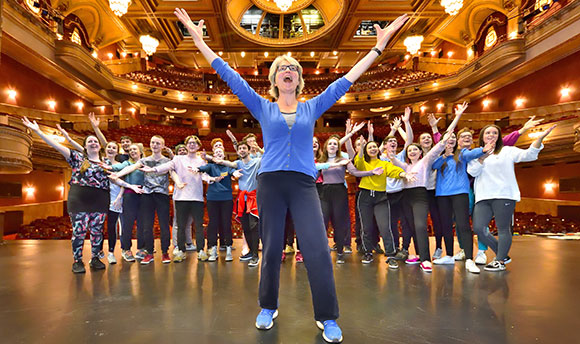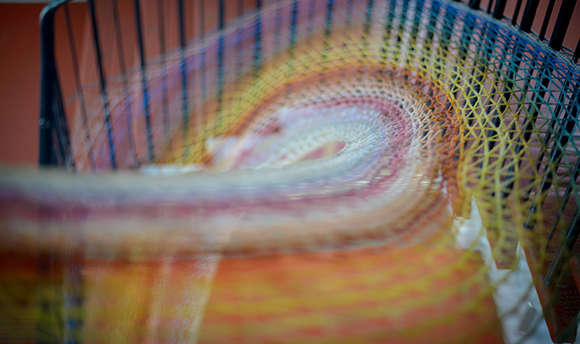Stefanie is Reader in Film and Media. She joined QMU in April 2019, after a time as post-doctoral researcher on projects at the Universities of Exeter, Glasgow and St Andrews. She also taught at Stirling, Ghent (Belgium) and Southampton. Stefanie is a member of the Culture in Society Research Centre.
- Overview
- Research Overview
- Research Publications
- Funded Projects
- Teaching & Learning
Stefanie’s PhD from the University of Stirling was awarded for her thesis entitled The Aesthetics of Moderation: Women Making Documentaries in North Africa, which was adapted into her first monograph Negotiating Dissidence: The Pioneering Women of Arab Documentary (EUP, 2017). She has also published a number of edited collections and co-authored Women in African Cinema (Routledge, 2020). Her qualifications also include an MA (Distinction) in Literature and Film from collections University and a Licentiate (Distinction) in English Literature from Ghent University (Belgium). Stefanie is one of three editorial board members of the Edinburgh University Press series ReFocus: The International Directors, and an editorial board member of the Journal of African Cinemas. She is also a member of the executive committee of the British Association of Film, Television and Screen Studies.
She has professional experience with several international film festivals as coordinator, programmer, curator and trustee. For 17 years she worked for Africa in Motion, the largest African film festival in the UK, and she is now an active board member of the Edinburgh-based charity STEKAskills.
Stefanie has expertise in the following areas and welcomes PhD candidates interested in these topics: Feminist Film History, Non-Fiction, Third Cinema, Poetry Film, Animation, African Film, Arab Cinema, Film Festivals.
Stefanie’s area of expertise is feminist, activist and world cinema. She is a film historian interested in non-mainstream filmmaking such as non-fiction and animation, and the manner in which these art forms have been perceived and received on international festival networks. Central questions in her research focus on power structures, identity formation and emancipation. A particular interest is ethical spectatorship, and how film/viewing enables solidarity across borders. Past research projects have focused on global film archives and festivals, Arab women’s cinema, and animation in the Middle East – always inspired by the particular ways in which the exhibition of films impacts on diverse audiences.
Active research interests:
-
Feminist Film Histories
-
Non-Fiction
-
World Cinema
-
Arab and African Cinema
-
Film History (particularly the 1960s-1970s)
-
Film Festival Studies
-
Film-Philosophy
Between 2015-2019, Stefanie was Co-investigator on the AHRC-funded project Transnational Moroccan Cinema, with Prof. Will Higbee (Exeter) as the Principal Investigator. The project investigated the global position of Moroccan cinema. We held two large international conferences, restored a corpus of “neglected” Moroccan films, screened these at festivals around Morocco, the UK and globally, and organised roundtable discussions on the state of the globalising Moroccan film industry.
From 2016-2018, she worked on the Glasgow-based Africa’s Lost Classics project, in tandem with Africa in Motion. This project was an archaeology of African film history, an investigation of the loss of African film heritage due to colonialist structures, and the role of women in film history, specifically. We showcased lost and forgotten films, and restored/digitised a number of women’s films.
In the period 2021-2023, Stefanie led the RSE-funded project Global Women’s Film Heritage, through which we established a global network of scholars, archivists, filmmakers and activists working on the expansion and emancipation of the world’s film heritage by addressing the gaps in women’s film history. We held two international online networking symposia, did fieldwork in global archives and published an open-access, online publication of creative, scholarly and activist video work on the topic of global women’s film heritage.
I teach undergraduate and postgraduate courses in film studies with a participatory and intersectional sensibility. The growing public and academic recognition of feminist and critical race theory challenges us to revise curricula and canons, and feed my interest in non-mainstream texts, approaches and analyses.
Academic awards:
- BAFTS Award for Best Edited Collection 2018: Animation in the Middle East: Practice and Aesthetics from Baghdad to Casablanca
- Above & Beyond Award from the University of Exeter for “excellence in Impact Case Study work”



